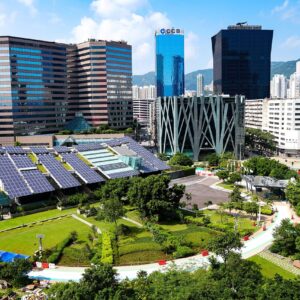Course Description:
Delve into the relationship between society and the environment with this comprehensive Environmental Sociology course. This program is designed to provide learners with an understanding of how social structures, behaviors, and policies interact with the natural environment. Using an engaging trivia-based self-learning format, participants will explore key topics such as environmental issues, sustainable development, environmental justice, and the role of social institutions in environmental protection. Whether you’re a sociology student, environmental advocate, policymaker, or simply interested in understanding the social dimensions of environmental challenges, this course offers valuable insights into the interconnectedness of society and the environment.
Related Courses in K4B:
– Sociology of Social Inequality: Learn about the social inequalities that intersect with environmental issues, including how marginalized communities are disproportionately affected by environmental degradation.
– Environmental Policy: Study the policies designed to address environmental concerns, promote sustainability, and protect the natural world.
– Social Movements: Explore the role of environmental movements and activism in shaping public discourse and policy on environmental protection.
– Sustainability and Society: Understand the social, economic, and environmental dimensions of sustainability and how societies can create equitable solutions to global challenges.
– Climate Change and Society: Study the social impacts of climate change and how societies are responding to this global environmental crisis.
Key Features:
– Trivia-Based Learning: Interactive questions covering both foundational and advanced topics in environmental sociology for an engaging learning experience.
– Achievement-Based Rewards: Earn certificates, badges, and other incentives as you progress through the course.
– Real-World Applications: Gain practical knowledge to apply environmental sociology concepts in policy-making, advocacy, community development, and environmental justice work.
– Scholarships and Mentorship Opportunities: Access financial support and expert guidance to enhance your learning journey.
– Career Enhancement Opportunities: Outstanding learners will be recognized and recommended for roles in environmental policy, social work, public advocacy, and sustainability-focused organizations.
Skills Developed:
1. Introduction to Environmental Sociology: Understand the key concepts of environmental sociology, including how society interacts with and impacts the environment.
2. Social Constructs of the Environment: Study how cultural, economic, and political factors influence society’s perception and treatment of the environment.
3. Environmental Justice: Explore the social implications of environmental issues, focusing on how marginalized and disadvantaged communities are disproportionately affected by environmental degradation.
4. Environmental Movements: Learn about the history and impact of environmental movements, including conservation, sustainability, and climate justice movements.
5. Sustainable Development: Study the social, economic, and environmental pillars of sustainability, and how societies can balance growth with ecological conservation.
6. Global Environmental Issues: Examine global environmental challenges such as climate change, deforestation, and biodiversity loss, and their societal impacts.
7. Environmental Policy and Governance: Explore how laws, policies, and government actions influence environmental protection and sustainability.
8. The Role of Institutions in Environmental Protection: Understand how institutions such as government, businesses, and non-governmental organizations (NGOs) play a role in environmental governance.
9. Ecological Footprint and Consumption: Study the concept of the ecological footprint and how consumption patterns affect environmental sustainability and resource management.
10. Environmental Risk and Social Responses: Understand the social response to environmental risks, such as natural disasters, pollution, and climate change, and the role of communities in mitigating these risks.
11. Green Technologies and Social Change: Learn how technological innovations in renewable energy, waste management, and resource conservation contribute to environmental sustainability.
12. The Sociology of Waste: Explore how societies produce and manage waste, and the social and environmental impacts of waste production, including issues related to recycling and pollution.
13. The Urban Environment: Study the environmental challenges faced by urban areas, including air pollution, water scarcity, and the urban heat island effect.
14. Social Movements for Environmental Protection: Learn about the role of grassroots organizations, environmental advocacy groups, and social movements in shaping environmental policies and behaviors.
15. Case Studies in Environmental Sociology: Analyze real-world case studies to understand how environmental sociology principles are applied in addressing global environmental issues and local community challenges.
Why Choose This Program:
– Interactive and Engaging: Trivia-based learning makes complex environmental sociology concepts enjoyable and easy to understand.
– Real-World Relevance: Learn practical strategies to apply environmental sociology concepts in environmental advocacy, policy-making, and community development.
– Comprehensive Support: Access scholarships, mentorship, and networking opportunities to support your academic and professional growth.
– Holistic Curriculum: Covers a broad range of topics in environmental sociology, offering a well-rounded understanding of the environmental challenges facing society today.
– Career Opportunities: Open pathways to roles in environmental policy, social work, sustainability consulting, community development, and environmental justice advocacy.
Enroll Today and Understand the Social Dimensions of Environmental Issues!
Take the first step toward mastering the relationship between society and the environment, and how to address the pressing challenges of our time.
Enroll now and start your journey in Environmental Sociology Training today!






